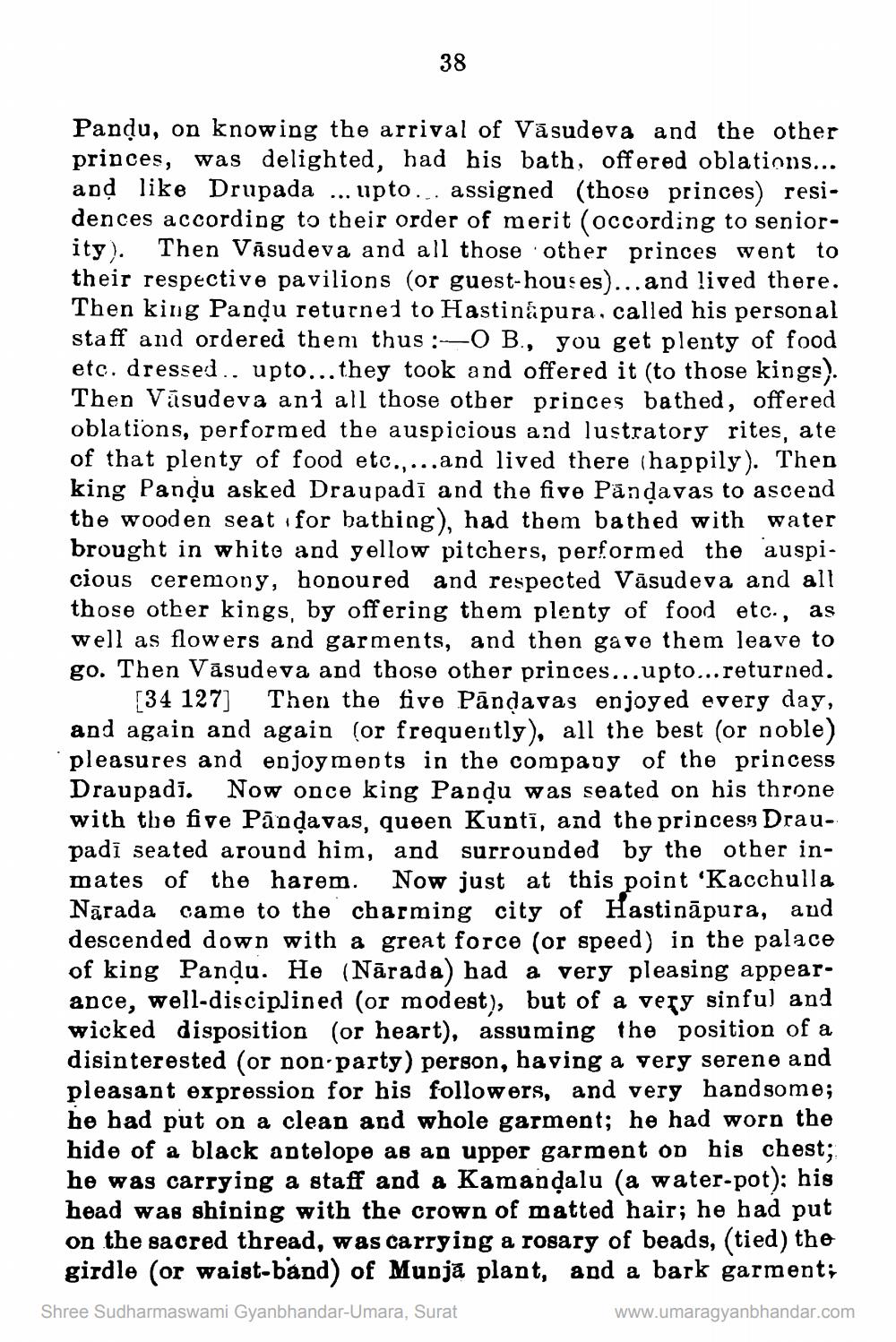________________
Pandu, on knowing the arrival of Vasudeva and the other princes, was delighted, had his bath, offered oblations... and like Drupada ... upto... assigned (those princes) residences according to their order of merit (occording to seniority). Then Vasudeva and all those other princes went to their respective pavilions (or guest-houses)...and lived there. Then king Pandu returned to Hastinapura, called his personal staff and ordered them thus:-O B., you get plenty of food etc. dressed.. upto... they took and offered it (to those kings). Then Vāsudeva and all those other princes bathed, offered oblations, performed the auspicious and lustratory rites, ate of that plenty of food etc., ... and lived there (happily). Then king Pandu asked Draupadi and the five Pandavas to ascend the wooden seat for bathing), had them bathed with water brought in white and yellow pitchers, performed the auspicious ceremony, honoured and respected Vāsudeva and all those other kings, by offering them plenty of food etc., as well as flowers and garments, and then gave them leave to go. Then Vasudeva and those other princes...upto...returned.
[34 127] Then the five Pāndavas enjoyed every day, and again and again (or frequently), all the best (or noble) pleasures and enjoyments in the company of the princess Draupadi. Now once king Pandu was seated on his throne with the five Pandavas, queen Kuntī, and the princess Draupadi seated around him, and surrounded by the other inmates of the harem. Now just at this point 'Kacchulla Nārada came to the charming city of Hastināpura, and descended down with a great force (or speed) in the palace of king Pandu. He (Nārada) had a very pleasing appearance, well-disciplined (or modest), but of a very sinful and wicked disposition (or heart), assuming the position of a disinterested (or nonparty) person, having a very serene and pleasant expression for his followers, and very handsome; he had put on a clean and whole garment; he had worn the hide of a black antelope as an upper garment on his chest; he was carrying a staff and a Kamandalu (a water-pot); his head was shining with the crown of matted hair; he had put on the sacred thread, was carrying a rosary of beads, (tied) the girdle (or waist-band) of Munjā plant, and a bark garment;
Shree Sudharmaswami Gyanbhandar-Umara, Surat
www.umaragyanbhandar.com




